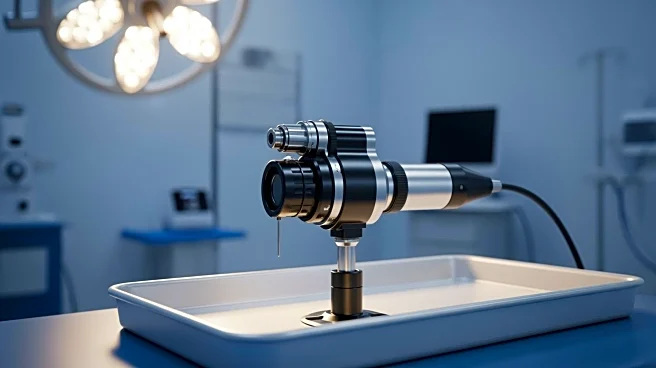What's Happening?
Researchers have developed a multipoint flexible optical probe designed to monitor intra-abdominal visceral perfusion, particularly in renal transplants. This device addresses the limitations of current monitoring techniques, such as MRI and CT, which
are costly and cumbersome. The new technology allows for real-time, non-invasive monitoring of blood flow and tissue color changes, crucial for detecting vascular complications like thrombosis. This advancement could significantly improve post-transplant care by enabling early detection of issues that could lead to graft failure.
Why It's Important?
The introduction of this optical probe technology represents a significant advancement in transplant medicine. By providing continuous and precise monitoring of transplanted organs, it can potentially reduce the incidence of graft failure and improve patient outcomes. This is particularly important given the scarcity of donor organs and the need to maximize the success of each transplant. The technology could also reduce healthcare costs by minimizing the need for invasive procedures and reoperations, thus enhancing the overall efficiency of transplant care.
What's Next?
The next steps involve further validation of the device in clinical settings and potential integration into standard post-transplant care protocols. Researchers may focus on refining the technology to enhance its accuracy and ease of use. Additionally, regulatory approval processes will be crucial for bringing this device to market. Successful implementation could lead to widespread adoption in hospitals, improving the standard of care for transplant patients and potentially setting a new benchmark in organ monitoring technology.















